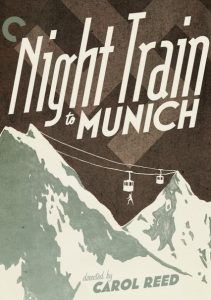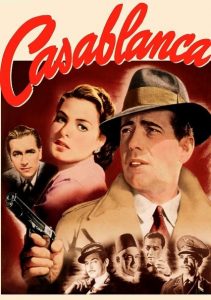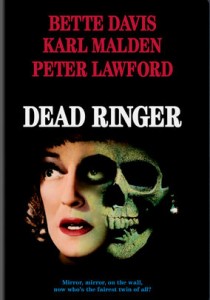Now, Voyager-1942
Director Irving Rapper
Starring Bette Davis, Paul Henreide, Claude Raines
Scott’s Review #1,466
Reviewed February 16, 2025
Grade: B+
Now, Voyager (1942) showcases Bette Davis’s acting chops in a dramatic film with a feminist stance. It also promotes believing in yourself and developing confidence, which can inspire us all.
Davis, a star, is the star of the film, so all eyes are on her. It’s an early role and one of an ingenue, but she adds a flurry of wit and humor to the role.
As the famous 1981 hit by Kim Carnes says, ‘She’s got Bette Davis Eyes,’ and the star evokes so much emotion with those eyes.
Films of the 1940s are magical and take me away to a time long before I was born. My husband had a fantastic encounter with director Irving Rapper years ago, necessitating our viewing of one of his films.
Boston heiress Charlotte Vale (Bette Davis) is a neurotic mess, primarily because of her domineering mother (Gladys Cooper). Reduced to insecurities and her mother’s glorified servant, Charlotte rarely leaves home.
But after a stint in a sanatorium, where she receives the attention of wise Dr. Jasquith (Claude Rains), Charlotte comes out of her shell and elects to go on a cruise for inspiration. Aboard the ship, she meets Jerry (Paul Henreid) and falls in love despite his being unhappily married.
They enjoy a brief tryst in Rio before returning to the States, where Charlotte struggles to forget him and find happiness in ordinary life.
But will she encounter him once again in an unexpected way? Will the link to his young daughter, Tina (Janis Wilson), who is similar to Charlotte, bring them together or drive them apart?
The pleasure in Now, Voyager is watching Davis play mousy- nervous and clad in an unflattering dress and spectacles. She couldn’t be more different from the regal star that Davis was. She frets with insecurity and a lack of self-confidence.
But it’s equally pleasing to see Davis as a blooming Charlotte. Dressed in a ravishing dress with a stylish hat and jewelry, she exudes confidence when she returns home to gaping mouths.
Is this the same Charlotte, they wonder?
I yearned for one big blowup scene where Charlotte puts her mother in her place, but she treads lightly. After all, Charlotte will inherit everything if she is just patient.
Still, it would have been satisfying to see Charlotte insult the shit out of Mommie dearest.
Cooper is divine in a one-note role as the callous and cold mother. Unhappy to have had Charlotte at all after birthing three sons, she mistreats her daughter and revels in her repression.
She’s a fantastic bitch to be remembered in cinema history.
While Charlotte’s relationship with Tina is delightful, and the pair helps each other heal, the film’s ending is unsatisfying.
Tina and Charlotte live happily ever after when Jerry agrees to let Tina reside in the Vale household, but Charlotte and Jerry don’t get the Cinderella story I had hoped.
Will Charlotte end up a spinster after all?
For 1942, Now Voyager was way ahead of its time in terms of mental illness, not given much credence until the 1960s or beyond. Charlotte’s time in a sanitarium is celebrated and healing for her, and stereotypes of ‘crazy people’ are not showcased.
Her doctor is a lifesaver for her, proving that mental health treatment can be successful. It was important to delve into that so early on.
Rapper competently directs the film. My favorite set is the quiet Boston area estate. The grand house is showcased amid pouring rain through the plentiful windows. This exudes coziness and stuffiness. Charlotte is trapped inside the walls.
Later, the Rio de Janeiro sequences are grand. An exciting trip to the top of Sugarloaf Mountain is a sheer delight and the highlight of the Charlotte/Jerry dynamic.
Now, Voyager (1942) is a gift for cinephiles eager for a trip down memory lane to see Bette Davus the star and a celebration of the Golden Age of Hollywood.
Oscar Nominations: Best Actress-Bette Davis, Best Supporting Actress-Gladys Cooper, Best Scoring of a Dramatic or Comedy Picture (won)



